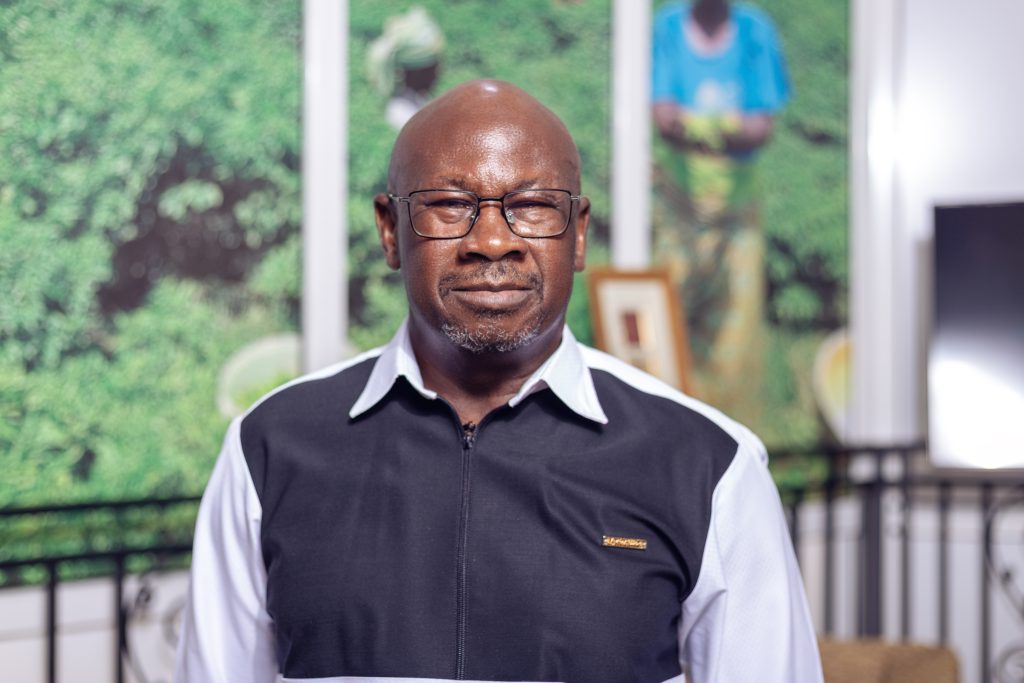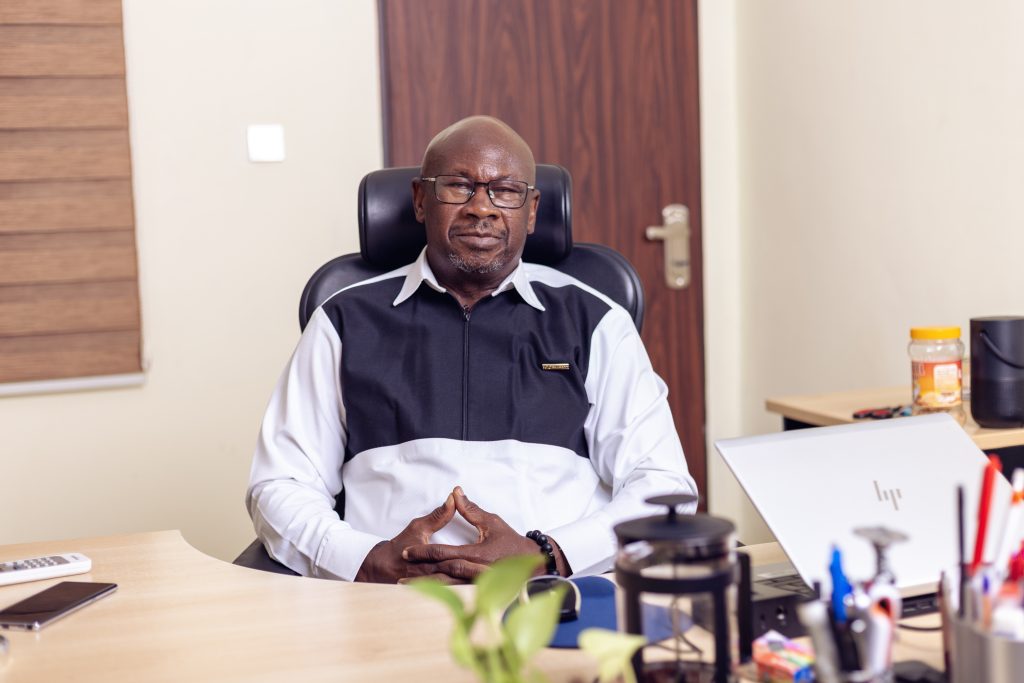This Content Is Only For Subscribers
Spotlight On Mr Ibrahim-Tanko Amidu’s Leadership Impact At STAR-Ghana Foundation
With a strong passion for development work, Mr. Ibrahim-Tanko Amidu traded his training as an accountant to embrace a profession that initially looked like uncharted waters, but soon became a blazing passion – governance and development. He found accounting quite limiting to his nascent inclination towards subjects on development and governance. Giving his reasons for studying Accounting at the School of Administration at the University of Ghana, he said it was more of a prestige than anything else “In those days, if you went to the School of Administration, the most prestigious course after Medicine was Accounting and other subjects; but I realised that it was quite restrictive”, he revealed. Even when he worked as an Accounting Officer in his first NGO work, his passion walked him out of the office to the field where he enjoyed doing fieldwork – writing reports and doing other assignments. However, he has never discounted the effects of his accounting background; his experience as an accountant has rather added to his professional proficiencies as CEO of a development-oriented organisation.
From An Accountant To A Governance And Development Expert: The Transitions
Mr. Ibrahim-Tanko Amidu has traversed the landscape of both public and private corporate space. His first stint in public service after his national service was at the Upper East Regional Development Corporation where he was employed as an accounts officer. From there, he worked briefly with Customs, Excise and Preventive Service (CEPS) also as an accounts officer.
After this, Mr. Amidu branched into development work. He got his first job with a Danish entity in northern Ghana known as the Ghanaian-Danish Community Programme. He was engaged as the Accountant-Administrator and later became the Programme Coordinator. This was when DANIDA (Danish International Development Assistance) needed an overall coordinator to oversee the scaled-up funding of the programme. His second stint with a development organisation took him to CARE International as the Northern Ghana Programmes Coordinator from 2000 – 2005. From there, he worked with VSO (Voluntary Services International) as the Country Director for Ghana. Currently, Mr. Ibrahim-Tanko Amidu is the Executive Director of STAR-Ghana Foundation, having previously served as the Programme Director and Team Leader when STAR-Ghana was a donor programme.
Development Trajectory: The STAR-Ghana Foundation Narrative
In order to understand development work and appreciate its impact on the socio-economic and political landscape in the Ghanaian context, Mr. Amidu gave an incisive background narrative to the inception of the STAR-Ghana programme and later STAR-Ghana Foundation, and his leadership role as a governance and development professional.
STAR-Ghana Foundation, according to Mr. Amidu, was a response to ongoing discussions in the early 2000’s and onwards around aid effectiveness, and by extension development effectiveness. . Towards that end, efforts were made at building consensus. Such efforts resulted in the Aid Development Conference, the Accra Declaration and the Paris Declaration, among others. These efforts were geared towards Aid effectiveness. Harmonisation was a key factor in forging aid effectiveness. Aid donors needed to harmonise their approaches and work closer together to enhance impact and decrease the incidence of duplication, among others.
Out of the harmonisation approach for aid impact, a novelty concept evolved: the basket funds concept or pooled donor funding for programmes. Mr. Amidu explains that, “a ‘basket fund’ is a programme or a mechanism that is funded by a number of donors to implement their programmes in the country.” STAR-Ghana emerged from the ‘basket funds’ concept. According to him, “the STAR-Ghana programme was funded by four donors: The UK as the Lead Donor, the European Union , USAID (United States Agency for International Development) and DANIDA (Danish International Development Aid). These four international donor agencies pooled their resources together into a programme called STAR-Ghana, with the acronym “STAR” standing for the following: Strengthening Transparency, Accountability and Responsiveness in Ghana.

The STAR-Ghana Programme was implemented in Ghana in two phases: Phase I (2010 – 2015) and Phase II (2015 – 2020). Making it a total of ten years all together. The Fund management involved about USD 75 million, which supported well over 270 Ghanaian organisations. Before the programme ended in 2020, the Ghanaian side advanced the argument that, hitherto, all the short-term programmes – the Rights and Voice Initiative (RAVI), the KASA programme, and the G-RAP programme (Ghana Research and Advocacy Programme) all folded up after five years.
Taking a cue from the short-term limited effects of those programmes, the Ghanaian side felt that it would not be prudent for STAR-Ghana to also suffer same fate. The standpoint of the Ghanaian group was that, it was not feasible to address the underlying causes of poverty, inequality and under-development with a five-year programme. That undertaking needed a long-term intervention, Mr. Amidu stressed that the support and the advocacy needed to be sustained. That Ghanaian side, which was spearheaded by Prof. Akilagpa Sawyerr, Chair of the Steering Committee of the programme pushed harder for Ghanaian ownership and leadership of the programme.
Their spirited efforts yielded the desired dividends. The STAR-Ghana programme ended in 2020 and STAR-Ghana Foundation became operational in 2019 as an independent Ghanaian-owned, Ghanaian-led organisation, with a two-year overlap between the programme and the Foundation.
Development And Governance
Challenges
The Economy
Mr. Amidu asserts that, from a not-so-pleasant outlook in terms of the fundamentals, Ghana has not changed much from what was inherited at the time of independence. The economy is still largely focused on primary commodities’ exports, very little industrialisation, more outward-facing economy and heavy reliance on imports, among other constraints. In his view, that broad context has not changed He states further, “I think fundamentally, the economy has not thrived significantly over the years. Inequality is still quite high and poverty has deepened in some areas, both geographically and in terms of occupations.”
He also mentioned that the “Guggisburg Economy” Ghana inherited at the time of independence, was still in force, and should have changed a long time ago, Mr. Amidu posed a question, “What has significantly changed?” He laments, “We are not adding as much value to our primary products. We are still reliant on the big three, as we call them: cocoa, timber, gold or minerals. We are so susceptible to external shocks that as soon as there is an external shock, whether it is Ukraine, Tariffs or Aid cuts, as witnessed from the United States, we bear the heavy brunt”
Civil Society Organisations
On prospects of Civil Society Organisations in Ghana, Mr. Amidu is not enthused about global happenings and their effects on the development and governance agenda. He reveals that, although in Ghana, unlike other countries where Civil Society Organisations are suppressed, ours are active, yet many are confronted with a number of challenges, due to their heavy reliance on external funding. The smallest shock or change in policy in donor countries affects them disproportionately. For example, when President Trump of the US decided to implement a shift in policy, he shut down the United States Agency for International Development. That single policy change had a telling toll on a lot of CSO’s. It led to a massive shock; laying off of NGO staff, stalling or termination of development programmes, and weakening of civil society organisations’ impact in governance and development. Not only was it the United States that went on that trajectory, The UK, and The Netherlands have reduced development funding globally, weakening CSO’s and reducing their impact significantly.

The Media
The Ghanaian media front, Mr. Amidu contends, could do much better to advance the cause of good governance and enhanced development than it is doing now. “With the return to democratic governance in 1992, many media organisations and channels sprung up. Coupled with the advent of social media, the media space has become very vibrant. With the plethora of media organisations, reach and influence, Mr. Amidu thinks the media has done well enough in engendering constructive conversations around development issues but could do more in tackling topical issues and asking salient questions bordering on development, questions like “Why are we where we are now? Why are children in parts of the country not able to access basic school furniture and are lying down on their stomachs to learn? Why are pregnant women still dying for lack of space and proper care in our health facilities? Why are persons with disability largely excluded from our socio-political life? Those conversations need to be had, but we have turned the media, especially the traditional media, into mouthpieces of political parties. So, everything is about NPP, NDC!”
Mr. Amidu echoed the sentiments of some Ghanaians to the effect that one political group after the other, only grant licences for TV and FM stations to pro-party persons to advance their political agenda. This untoward parochial interest does not serve the governance and development interests of Ghana, a disturbing area where the media have not done well.” But of course, we have seen the kind of investigative, journalism that some media houses have done and which have added to improve our overall democratic landscape.”
Governance
With the economy in its “Guggisburg Era” model without any visible drive to change course, to ensure sustained generation of the kind of jobs that are needed for the ever-increasing army of young people who are coming out of school, on one hand, and the visible corruption and opulence being displayed by politically exposed persons in our society, on the other hand, young people seem to have disengaged from our governance processes. They are disillusioned; they do not see the dividends of our democracy and our democratic culture.
Continue to read the full story here


